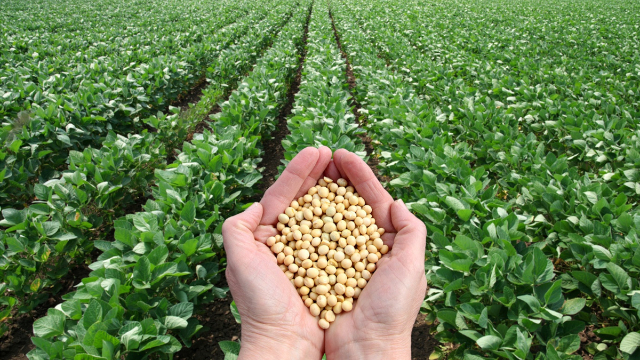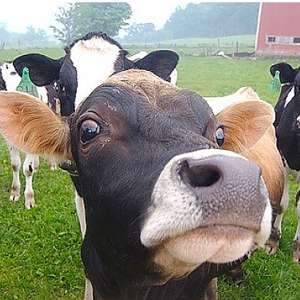Somebody was going to do it sooner or later. And the results of recent lab evaluations on real meat and plant-based substitutes reveal that, though consumers may consider them dietary equivalents, they are very different from one another at the metabolic level…
 Soy Beans: A key component of many plant-based protein products, along
Soy Beans: A key component of many plant-based protein products, along
with peas, chickpeas, lentils, fava beans, and navy beans. Pretty good
for you in some ways, but not dietarily equivalent to real meat…
What they did
Researchers at Duke University wanted to know if plant-based meat substitutes really are ‘plug-in’ replacements for real meat. They suspected ‘not’. After measuring the metabolites (digestion byproducts) of both real beef and plant based ‘beef’ substitutes, they compared the two on the basis of nutritional equivalence.
According to an abstract of the study report, “The Duke Molecular Physiology Institute’s metabolomics core lab compared 18 samples of a popular plant-based meat alternative to 18 grass-fed ground beef samples from a ranch in Idaho.”
What they found
It turned out that, though plant-based substitutes are fortified with certain nutrients to make them more ‘complete’ compared to real meat, and their overall levels of basic ingredients as stated on the nutrition facts label are very similar – or even superior- to those of real meat, there are many important differences at the metabolic level.
“To consumers reading nutrition [information] labels, they may appear nutritionally interchangeable,” said Stephan van Vliet, a postdoctoral researcher at the Duke Molecular Physiology Institute who led the research. “But if you peek behind the curtain using metabolomics and look at expanded nutritional profiles, we found that there are large differences between meat and a plant-based meat alternative.”
The analysis of 36 carefully cooked patties found that 171 out of the 190 metabolites they measured varied between beef and the plant-based meat substitute.
The beef contained 22 metabolites that the plant substitute did not. The plant-based substitute contained 31 metabolites that meat did not. The greatest distinctions occurred in amino acids, dipeptides, vitamins, phenols, and types of saturated and unsaturated fatty acids found in these products.
The takeaway
Several metabolites known to be important to human health were found either exclusively or in greater quantities in beef, including creatine, spermine, anserine, cysteamine, glucosamine, squalene, and the omega-3 fatty acid DHA. “These nutrients have potentially important physiological, anti-inflammatory, and or immunomodulatory roles,” the report states. But it also noted that the plant-based meat alternative contained several beneficial metabolites not found in beef such as phytosterols and phenols.
“It is important for consumers to understand that these products should not be viewed as nutritionally interchangeable, but that’s not to say that one is better than the other,” says van Vliet, a self-described omnivore who enjoys a plant-heavy diet but also eats meat. “Plant and animal foods can be complementary, because they provide different nutrients.”
My take
Yes, I thought that plant-based meat substitutes were ‘dietarily equivalent’ to real meat. And I was convinced of that after I read the government mandated Nutrition Information labels. And that’s as far as I went in my own, personal research.
I was glad to see van Vliet noted that the meat nutrients not found in plant-based substitutes, “are important for our brain and other organs including our muscles. But some people on vegan diets (no animal products), can live healthy lives – that’s very clear.”
Okay. And I know a couple of vegans who are disgustingly healthy (at least appear so) – but take several daily dietary supplements to make up for what they may be missing vis-à-vis micro-nutrients. So, they obviously understand that plant-based and real meat products are not directly interchangeable. One, a long-time friend, told me that, when she converted to veganism, her doctor ran a complete panel of blood and urine tests, and recommended a regimen of supplements for her, to ensure that her ‘numbers’ remained nominal.
And I want to take this opportunity to reiterate my old position that it’s not natural for humans to eat only plant-based foods. The human race as we know it today evolved down thousands of generations eating some of everything – meat, veggies, fruits and grains. Switching to an all-plant diet is bound to present issues that have to be addressed via ‘extraordinary measures’ to preserve one’s health, no matter what the Nutrition Info labels say.
Muse on that…
~ Maggie J.

